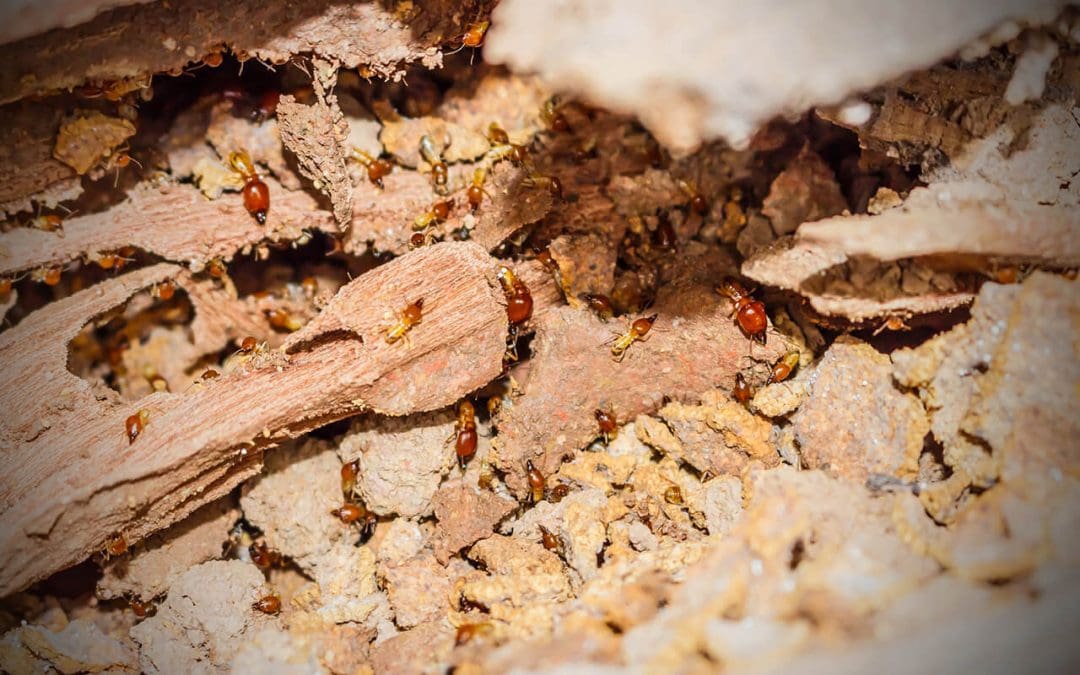Termites are tiny, wood-eating insects that can cause significant damage to your home. These pests feed on cellulose, the main component of wood, which makes them a serious threat to the structural integrity of buildings. The most common types of termites in the United States are subterranean, drywood, and dampwood termites. Each type has unique habits and environmental preferences, but all can wreak havoc if left unchecked. In this blog post, we’ll explore effective strategies to prevent termites and protect your home.
Keep Your Home Dry to Prevent Termites
Termites thrive in moist environments. One of the most effective ways to prevent an infestation is to keep your home as dry as possible. Start by ensuring that your roof and gutters are in good condition to prevent water accumulation. Repair any leaks in your plumbing system promptly, and make sure your home’s foundation has proper drainage. Using dehumidifiers in areas prone to moisture, such as basements and crawl spaces, can also help maintain a dry environment that is less attractive to termites.
Remove Wood-to-Ground Contact
Termites often access homes through wood that touches the ground. To minimize this risk, ensure that wooden structures such as decks, fences, and siding are elevated and do not come into direct contact with soil. Use concrete or metal barriers as a buffer between wood and soil. Keep firewood, lumber, and other wooden materials stored away from your home and off the ground.
Use Termite-Resistant Materials
When building or renovating your home, consider using termite-resistant materials. Pressure-treated wood, naturally resistant woods like cedar and redwood, and composite materials are less attractive to termites. During construction, You can use physical barriers, such as metal mesh or sand, to prevent termites from gaining access to wooden structures.
Regularly Inspect and Maintain Your Home to Prevent Termites
Routine inspections are crucial for early detection of termite activity. Inspect your home’s exterior and interior for signs of termite infestation, such as mud tubes, hollow-sounding wood, and discarded wings. Pay special attention to areas where wood is in contact with soil and any wooden structures that may be vulnerable to termites. If you notice any signs of termites, contact a professional pest control service immediately.
Reduce Mulch and Vegetation Near Your Home
Mulch and dense vegetation can create ideal conditions for termites by retaining moisture and providing shelter. To reduce the risk of infestation, use mulch sparingly and keep it at least 12 inches away from your home’s foundation. Trim back bushes, shrubs, and trees to ensure they do not touch the exterior walls of your home. This will reduce moisture levels and limit access points for termites.
Implement a Chemical Barrier
In addition to physical measures, you can protect your home with a chemical barrier. Termiticides, applied around the perimeter of your home, create a protective zone that repels or kills termites attempting to enter. While some homeowners may choose to apply these treatments themselves, hiring a professional pest control service for proper and effective application is generally recommended.
Preventing termites requires a combination of proactive measures and regular maintenance. Remember, early detection and intervention are crucial to preventing extensive damage. Protect your home and peace of mind by staying vigilant against these destructive pests.
FAQs on How to Prevent Termites
Can weather conditions affect termite activity?
Yes, weather conditions can significantly impact termite activity. Termites are more active in warm, humid climates and during rainy seasons. They are less active in cold weather but can still cause damage if they are already inside your home.
How long does it take for termites to cause significant damage?
The time it takes for termites to cause significant damage varies depending on the size of the colony and the type of termites. A large colony of subterranean termites can cause considerable damage in just a few months, while smaller colonies or drywood termites may take a few years to cause noticeable harm.
Are DIY termite treatments effective?
DIY termite treatments can be effective for minor infestations or preventive measures. However, they are generally not sufficient for severe infestations. Professional treatments are more comprehensive and effective, especially for large colonies or difficult-to-reach areas.
Are there any specific plants that repel termites?
Certain plants, such as vetiver grass and marigolds, are known to repel termites. Vetiver grass’s root system produces chemicals toxic to termites, while marigolds contain compounds that deter various pests, including termites.
A Plus Inspections of Texas provides home inspections in Conroe, TX, and surrounding areas. Contact us to schedule an appointment.

